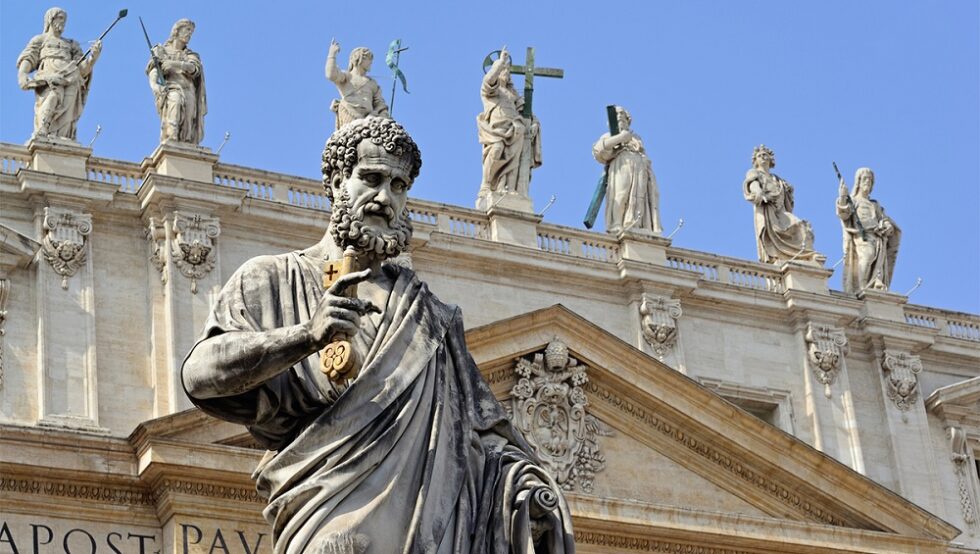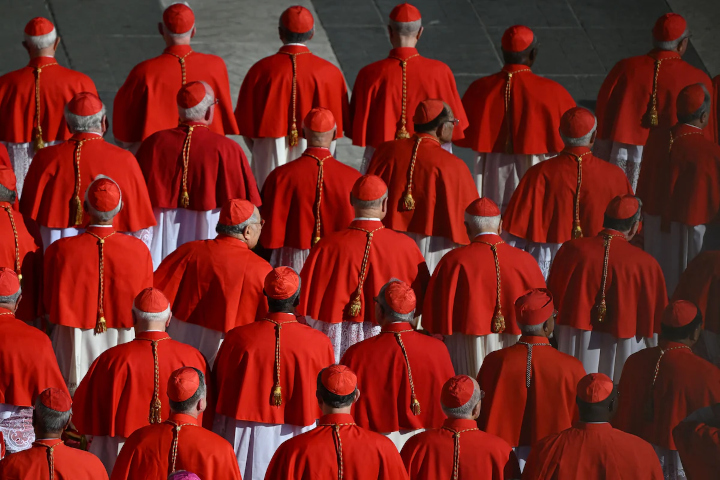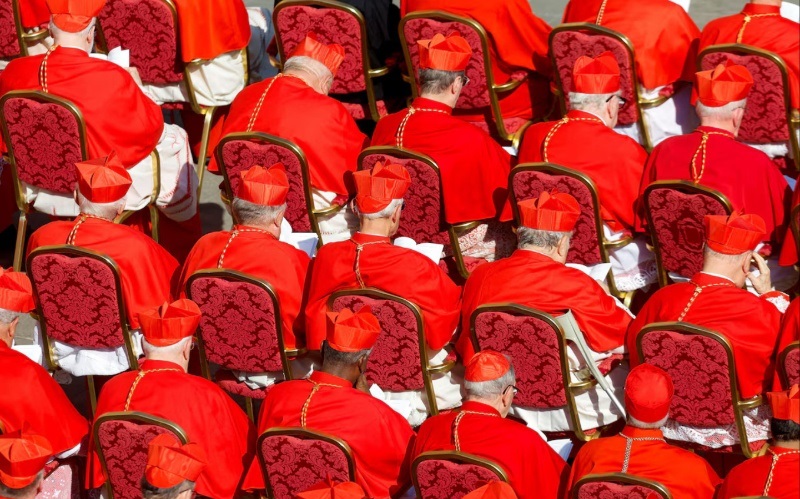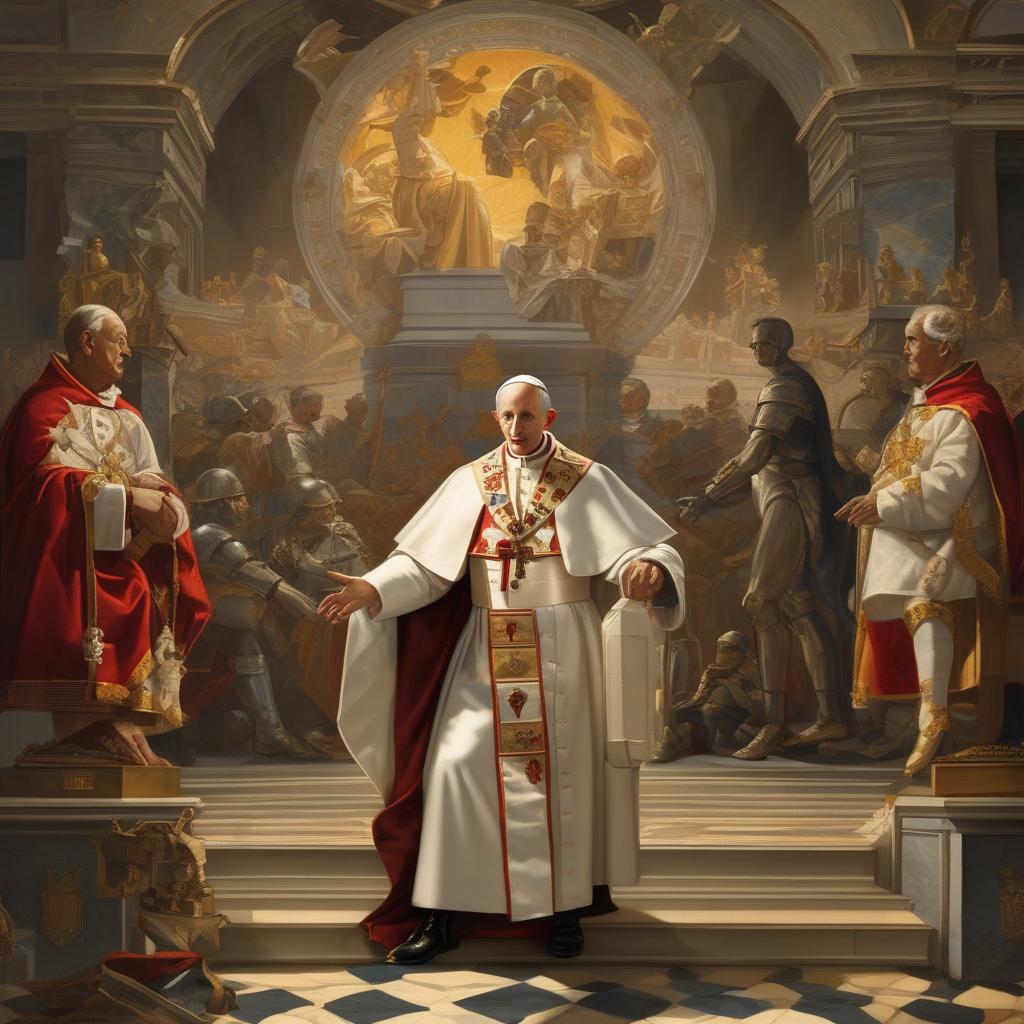
By Kurt Appel (Director of the Research Center Religion and Transformation in Contemporary Society at the University of Vienna. Kurt Appel is full professor of fundamental theology at the Catholic Theological Faculty of the University of Vienna and one of the leading scholars on Hegel’s philosophy.).
With the death of Pope Francis speculation about possible successors has begun in the international media. Many of the names mentioned are so dubious that one can only hope that the newspapers spreading such names do more thorough research on other political issues.
When attempting to predict potential successors to the late pope, the first task is to consider the situation of the Catholic Church and the resulting discourse on the path the cardinals wish to take. Secondly, the current composition of the College of Cardinals must be taken into account, as it largely reflects the late Pope’s policy decisions, given that the vast majority of the cardinals were appointed by him.
A clear majority of the cardinals therefore consists of people who fundamentally support reaching out to the peripheries of the world, continuing the opening of the Church, and above all transforming the Church toward greater synodality and participation of all the baptized. For this reason alone, cardinals such as Erdö, Burke, Sarah, or the Dutchman Eijk, who are repeatedly mentioned as possible successors to Pope Francis, are out of the question – since they are associated with a traditionalist course that stands for a retreat into a self-sufficient Church of the pure, i.e., the opposite of what Pope Francis has set out for the Catholic Church. The probability of one of these cardinals becoming pope is about as high as Donald Trump being elected pope.
Looking at the discourses that currently dominate the Church and the meetings of the cardinals, some of them can be distinguished, even if they are interrelated. Each of these discourses is associated with possible papal candidates, and the person who is elected will probably be someone who can meet several of the Church’s central topics (someone who is also a winning and, above all, honest personality, with reasonably good health, and has a reasonable ability of speaking Italian).
Age and origin are of secondary importance in comparison, although the ideal age for a pope is currently closer to 80 than 60, because people do not want the same pope for decades. As far as origin is concerned, the focus will be more on a non-European, most likely a person from Asia, but origin is not decisive.
Vatican’s Finances
The cardinal meetings before a papal election are characterized by open and honest discussion of the main challanges facing the Church. Accordingly, a central topic of discussion is sure to be the Vatican’s finances. Pope Francis has tried to bring some order to the Vatican’s financial jungle, but has only been partially successful. The Vatican’s financial problems have worsened since Francis took office in 2013, as the Vatican’s main financial backers have gradually disappeared. The German Church has lost a great deal of financial power, and the same is true of the US Church, whose dioceses are facing billions in claims from victims of sexual abuse.
What is needed, therefore, is a much more efficient structure for Church leadership, and this requires a pope who is either well organized himself or at least good at delegating. Parolin certainly has extensive experience with the Curia, which would be an advantage as a future pope, but he has not distinguished himself as a gifted organizer. The Philippine cardinal Tagle, who is repeatedly mentioned as a candidate for pope and is also active in the Curia, has proven to be clumsy in organizational matters, according to many insiders.
The US Cardinal Prevost, who heads the Dicastery responsible for bishop appointments in Europe, America, and Australia, has a much better reputation in this regard. Although he has not been member of the Vatican Curia for very long, he is considered a skilled organizer and has spent several years as a missionary and eventually even as a bishop in Peru. Possible candidates who could emerge from the need for a restructured and, above all, financially sound Church include the Archbishop of Chicago and staunch Trump opponent Cardinal Cupich and the Archbishop of Newark, Cardinal Tobin, who can also be counted among the anti-Trump wing of the US Conference of Catholic Bishops.
Synodality
Organizational issues are also the subject of another debate, namely the question of how the synodal path of the Church, which Pope Francis initiated with the two global Church meetings in 2023 and 2024, should continue. One of the Pope’s last acts was to announce a global Church assembly in 2028, which represents, so to speak, Francis’s last will and testament. This assembly should focus on the concrete implementation of Church reforms, especially the question of what the local Churches can decide by themselves and which decisions are the responsibility of the universal Church.
Some cardinals certainly stand out when it comes to the question of continuing the ecclesiastical reforms that have been begun, namely Cardinal Grech, the secretary of the Permanent Council of the International Synod of Bishops, but also figures such as the Iraqi Cardinal Sako and the British Cardinal Radcliffe, who is certainly the most brilliant of all the cardinals, at least in theological terms. Despite or perhaps because of his age of 79, Radcliffe could be a serious candidate for the papacy, health permitting.
Peripheries
The third decisive discourse is that of the peripheries. This discourse concerns the question of how the Catholic Church, from a position of weakness and marginality, can enrich global culture as well as regional cultures, and to what extent it is capable of dialogue and cooperation with other religions; in extreme cases, it is also a question of bearing witness to the Gospel in situations of persecution and distress.
This discourse is particularly developed in the Asian Church: in addition to Cardinal Sako, already mentioned, the following are particularly noteworthy: Cardinal Bo, Archbishop of Rangoon and President of the Asian Bishops’ Council, Cardinal Pizzaballa, Patriarch of Jerusalem, Cardinal Ferrao, Patriarch of Goa and President of the Indian Bishops’ Conference, Cardinal Kikuchi, Archbishop of Tokyo, who is also president of Caritas Internationalis and has worked as a missionary in Africa, the Filipino Cardinal David, and Cardinal Goh from Singapore.
All of them could be candidates for the papacy if this discourse becomes the leading theme (and provided they have a basic knowledge of Italian). Outside Asia, the Brazilian Cardinal Steiner, bishop of the Amazonian capital Manaus, who also has organizational experience as former secretary general of the Brazilian Bishops’ Conference, or the Archbishop of Rabat, Lopez Romero, could be particularly interesting candidates.
Little Chances for Italian and African Cardinals
The election of a cardinal from Africa or Italy is rather unlikely. The Church in Africa has gained enormous self-confidence in recent years and, with Cardinal Ambongo Besungo from Kinshasa, but the number of African cardinals is comparatively small and, above all, their influence beyond Africa currently seems limited.
The situation in Italy is similar to that of the African Church: its most important representative, Cardinal Zuppi, has not yet been able to gain recognition beyond Italy, and even within Italy he is considered a pastorally sensitive bishop but not a real leader. Latin America has prophetic figures such as Cardinal Castillo from Peru, but a second Latin American pope in a row is rather unlikely – with the exception of the aforementioned Cardinal Steiner, whose work in Amazonia would be in line with the discourse of the periphery.
There is hardly any European diocesan bishop in sight who could emerge as a candidate from the aforementioned discussions: the most likely candidate would be Cardinal Aveline from Marseille, who was considered a confidant of Francis and is president of the French Bishops’ Conference. However, his handicap is reportedly that he does not speak Italian.
As an outsider, it is impossible to judge which cardinals in the pre-conclave are developing particularly convincing visions for the Church, what their state of health is, or which factions are behind the individual candidates, and there are a number of other possible papal candidates besides those mentioned above.
What is certain, however, is that the next pope will be connected to these discourses and that cardinals who seek a restoration of the pre-Francis era will have no chance of becoming Francis’ successor.










Il prossimo papa: sfide e nomi - SettimanaNews